Experiment - Definition, Examples, Quiz, FAQ, Trivia
Learn about the scientific method and how scientists test ideas with observations and investigations
What is an Experiment?
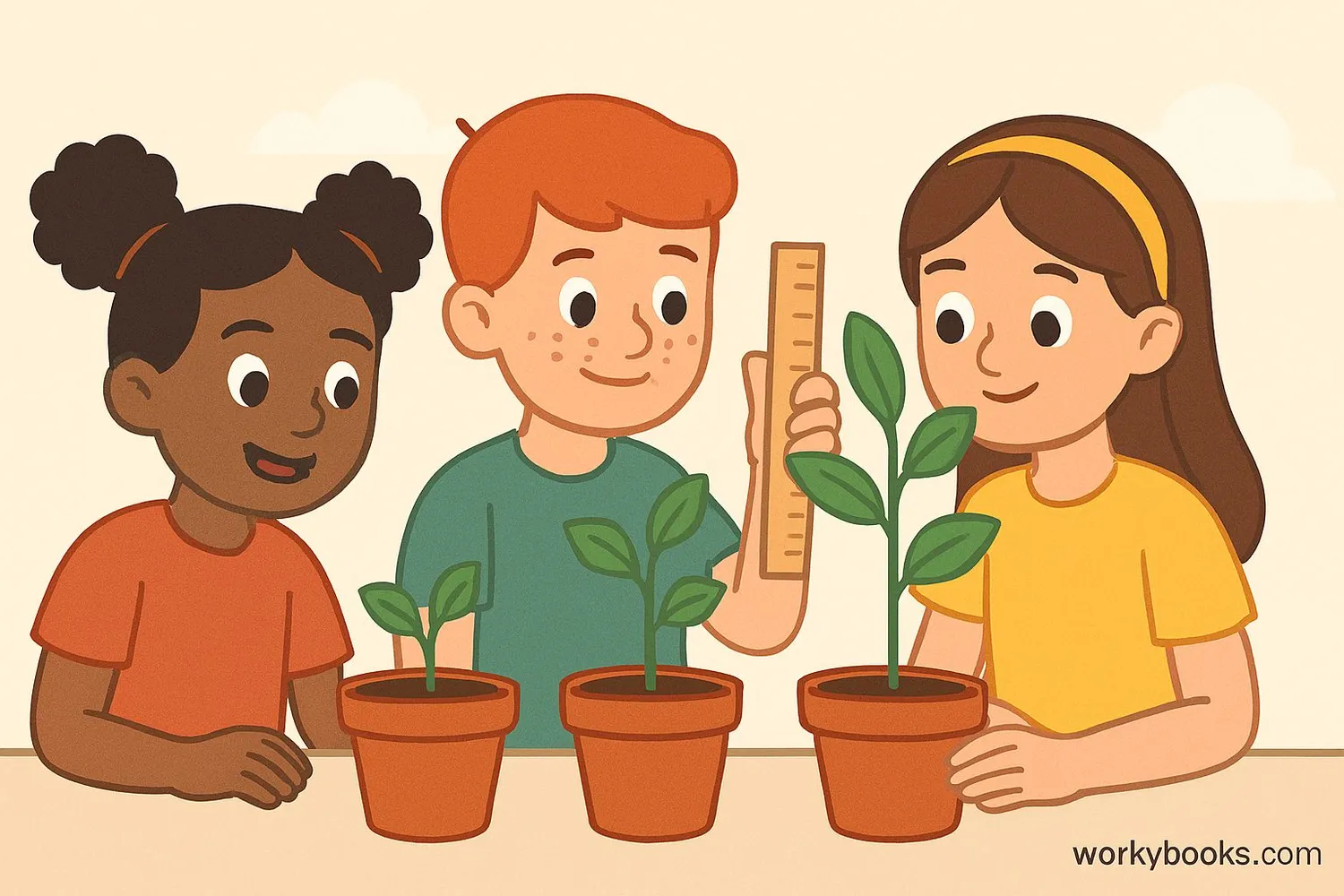
An experiment is a special test that scientists use to answer questions about how our world works. When we do experiments, we carefully change one thing to see what happens to something else.
Experiments help us learn new things by testing our ideas. For example, you might wonder which type of soil helps plants grow best. You could set up an experiment to test different soils and measure the plant growth.
Scientists use experiments to make discoveries about everything from tiny germs to distant planets. Even famous scientists like Marie Curie and Albert Einstein used experiments to learn amazing things!
Key Concept
Experiments help us answer questions by testing ideas in a careful, organized way.
The Scientific Method
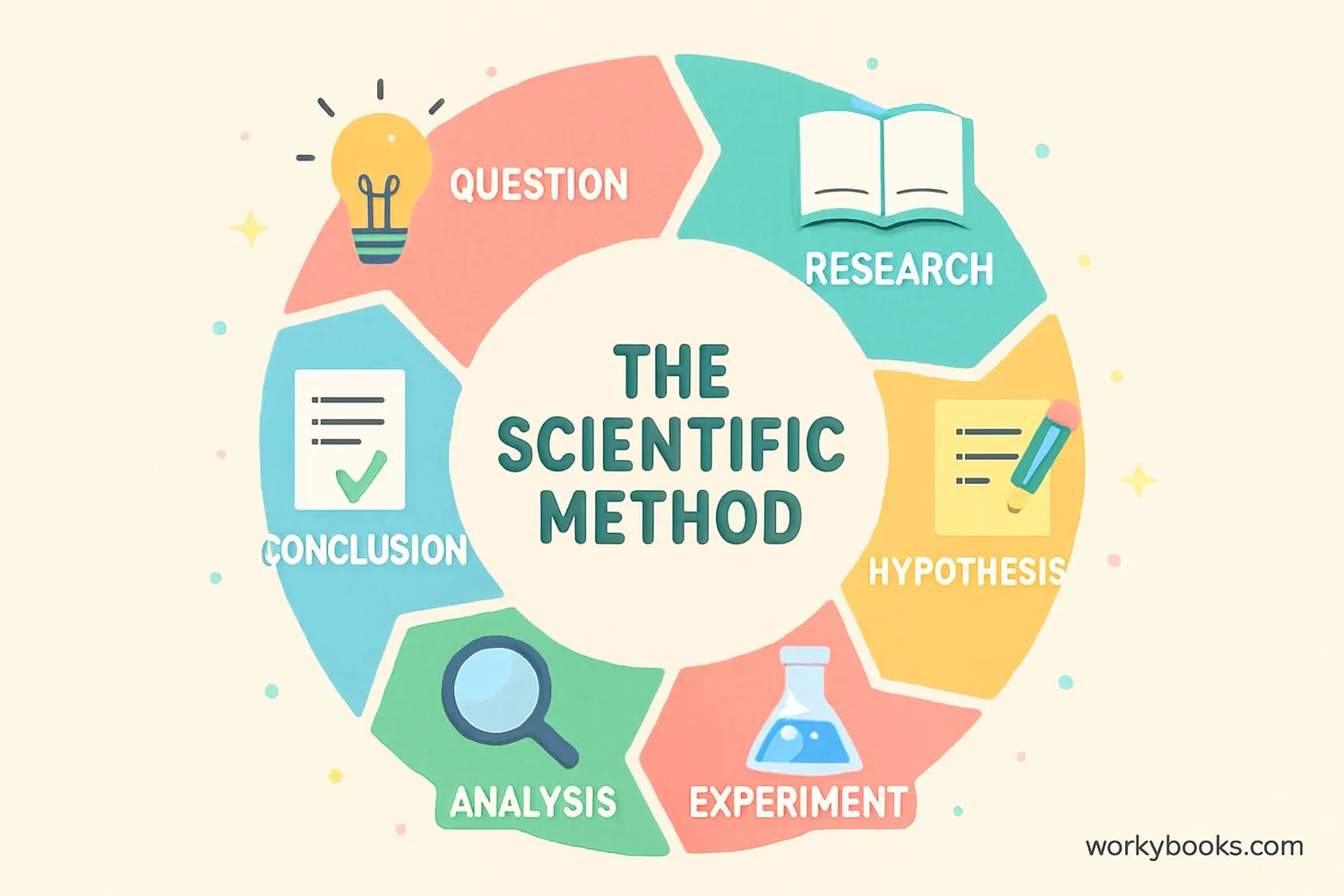
The scientific method is a step-by-step process that scientists use to conduct experiments. It helps make sure their experiments are fair and their results are accurate.
- Ask a Question: Start with something you wonder about.
- Do Research: Learn what others already know about your question.
- Form a Hypothesis: Make an educated guess about what you think will happen.
- Test with an Experiment: Design a fair test to check your hypothesis.
- Analyze Data: Look carefully at what happened during your experiment.
- Draw Conclusions: Decide what your results tell you about your question.
Remember
Even if your hypothesis turns out to be wrong, you still learn something valuable from the experiment!
Types of Experiments
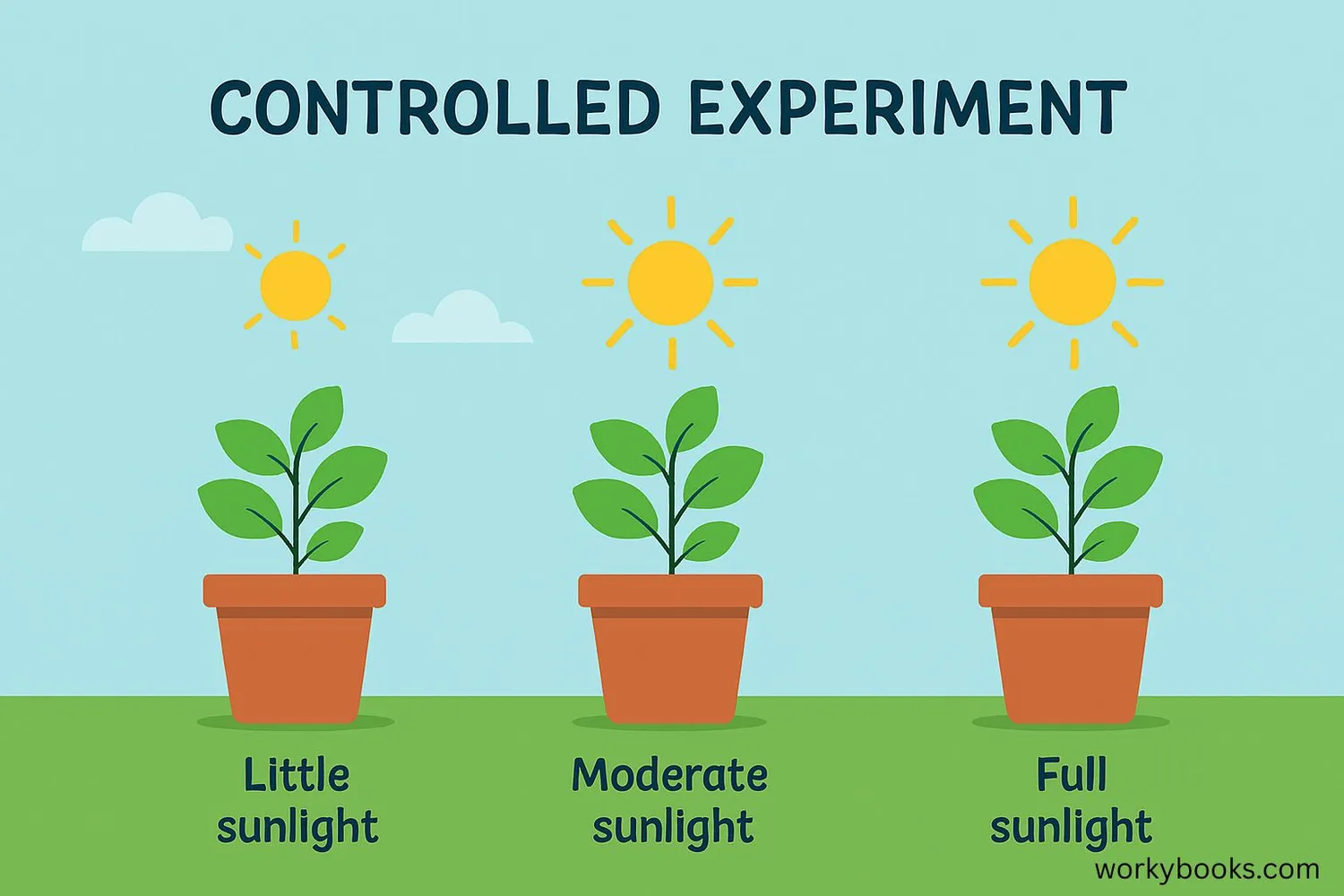
There are different types of experiments that scientists use depending on what they want to learn:
Controlled Experiments
In a controlled experiment, scientists change only one thing (called a variable) at a time while keeping everything else the same. This helps them know for sure what caused any changes they observe.
Observational Studies
Sometimes scientists just watch and record what happens naturally without changing anything. For example, they might observe animals in the wild to learn about their behavior.
Experiment Tip
For the fairest test, scientists often repeat their experiments multiple times to make sure the results are consistent.
Science Vocabulary
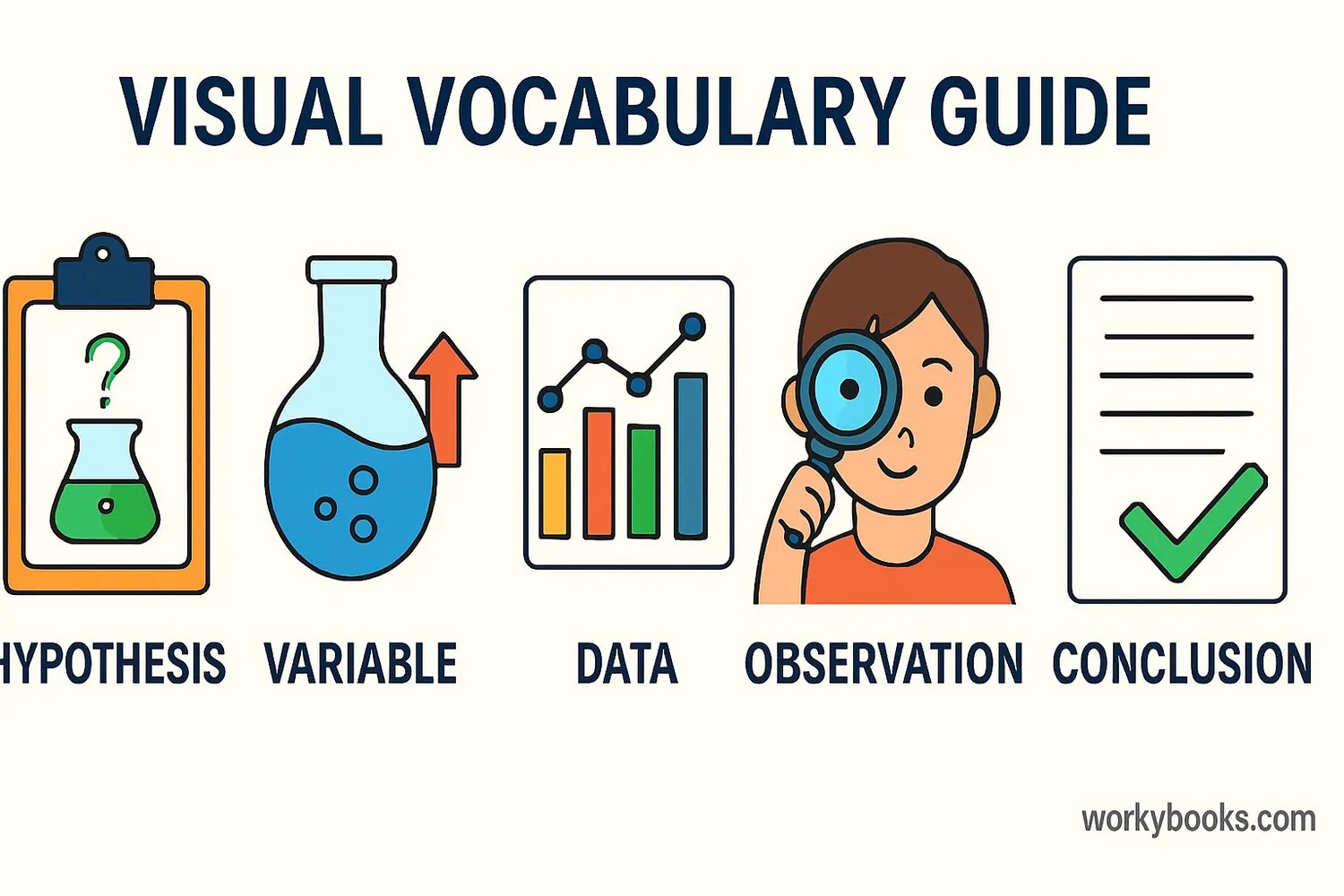
Here are some important words scientists use when talking about experiments:
Hypothesis
An educated guess about what will happen in an experiment.
Variable
Something that can be changed or controlled in an experiment.
Data
Information collected during an experiment.
Observation
Using your senses to gather information.
Conclusion
What you learn from analyzing your experiment results.
Control
The part of an experiment that doesn't change, used for comparison.
Experiment Examples
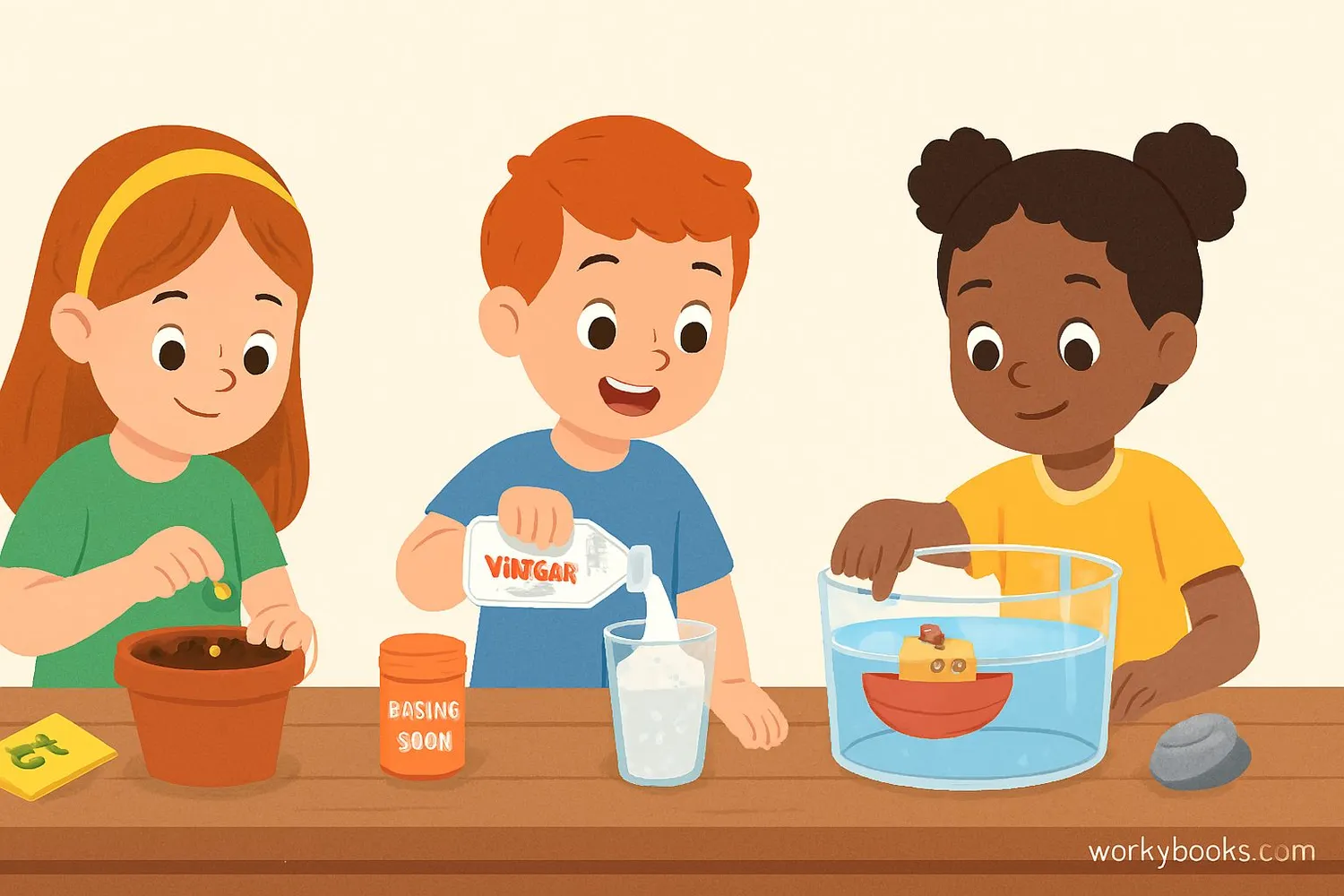
Let's look at some examples of experiments you might try:
Plant Growth Experiment:
Question: Does music affect plant growth?
Hypothesis: Plants that listen to music will grow taller.
Experiment: Grow two identical plants. Play music for one plant daily, but not for the other. Measure their growth over time.
Data: Record plant heights each week.
Conclusion: Analyze whether the music made a difference.
Baking Soda and Vinegar Experiment:
Question: What happens when you mix baking soda and vinegar?
Hypothesis: They will react and create bubbles.
Experiment: Add vinegar to baking soda and observe.
Data: Describe what you see, hear, and feel.
Conclusion: Explain the reaction that occurred.
These are just two examples of the many experiments you can try at home or in school!
Safety First
Always have an adult help you with experiments, especially when using materials that could be dangerous.
Experiment Knowledge Quiz
Test what you've learned about experiments with this 5-question quiz. Choose the correct answer for each question.
Frequently Asked Questions
Here are answers to common questions about experiments:
Science Experiment Trivia
Discover interesting facts about experiments and scientists:
Ancient Experiments
The ancient Greeks conducted some of the first experiments over 2,500 years ago. They tested ideas about nature, mathematics, and the stars without modern tools.
Laboratory Safety
Scientists wear lab coats and safety goggles not just to look official, but to protect themselves from chemicals and other hazards during experiments.
Accidental Discoveries
Some important discoveries happened by accident during experiments! Penicillin, microwave ovens, and plastic were all discovered by scientists who noticed unexpected results.
Longest Experiment
The longest-running experiment is the pitch drop experiment started in 1927. It shows that pitch (a type of tar) is actually a liquid that flows very slowly!





